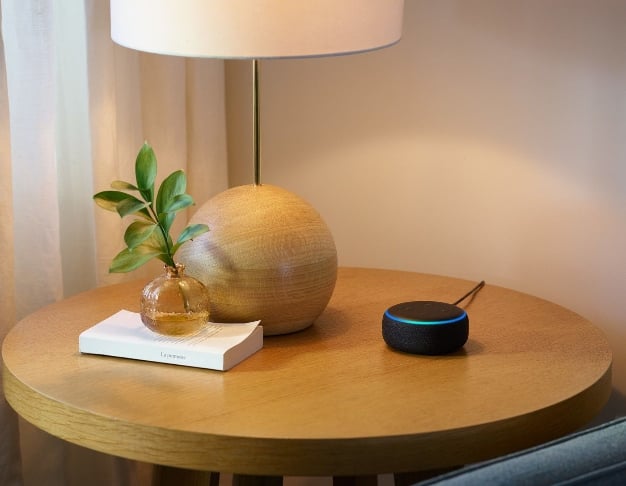Amazon Echo Now On Sale In Microsoft Store Undermining Cortana AI-Enabled Devices
This is a striking turn of events given that Microsoft is currently marketing the Cortana-powered Harman Kardon Invoke AI smart speaker. The Invoke hit the market priced at $199, but is now selling for $99 from the Microsoft Store -- only the Pearl Silver model is available, as the Graphite version is currently out of stock.

The move to sell Amazon hardware products isn't completely out of left field considering that Microsoft and Amazon announced cross-platform Cortana-Alexa integration that allows Cortana users to access Alexa skills and vice versa. However, it's without question that Amazon stands to gain the most with this partnership given the ubiquity of Alexa support across a wide spectrum of smart home devices.
Microsoft's share of the AI speaker market with the Invoke is nearly non-existent, while Amazon and Google are duking it out for top honors. Microsoft's embrace of the Echo family in its own store is further acknowledgement of its failure to provide a true hardware "gateway" to the smart home.

While it's true that a Windows 10 PC can respond to voice commands through Cortana to control things like your TV, smart switches, and thermostat -- especially with the added Alexa integration -- the sheer simplicity of throwing a $20 or $24 Echo Dot in every room in the house (or a Google Home Mini) is a much better approach than relying on PCs.
Does this mean that the end of the road is near for the Cortana voice assistant? It's still a very helpful tool within Windows 10 and even on the Xbox One for accomplishing tasks, but Alexa integration threatens its relevance. The company's efforts with first-party hardware in booming segments appear to be fading fast. We've seen this before as Microsoft faltered with Windows Phone/Windows 10 Mobile devices. The company couldn't compete with the like of smartphones running Android and iOS; now Microsoft is instead creating apps and extending its services to both platforms, and even sells Android smartphones via the Microsoft Store (a la the Samsung Galaxy S9).
Now, the company appears to be ceding any traction in the smart speaker market to the like of Amazon, Google, and even Apple with its HomePod. Microsoft definitely has the prowess to create great hardware, but its execution has definitely been hit or miss. At least the Surface family of PCs appears to be selling well at this point...

